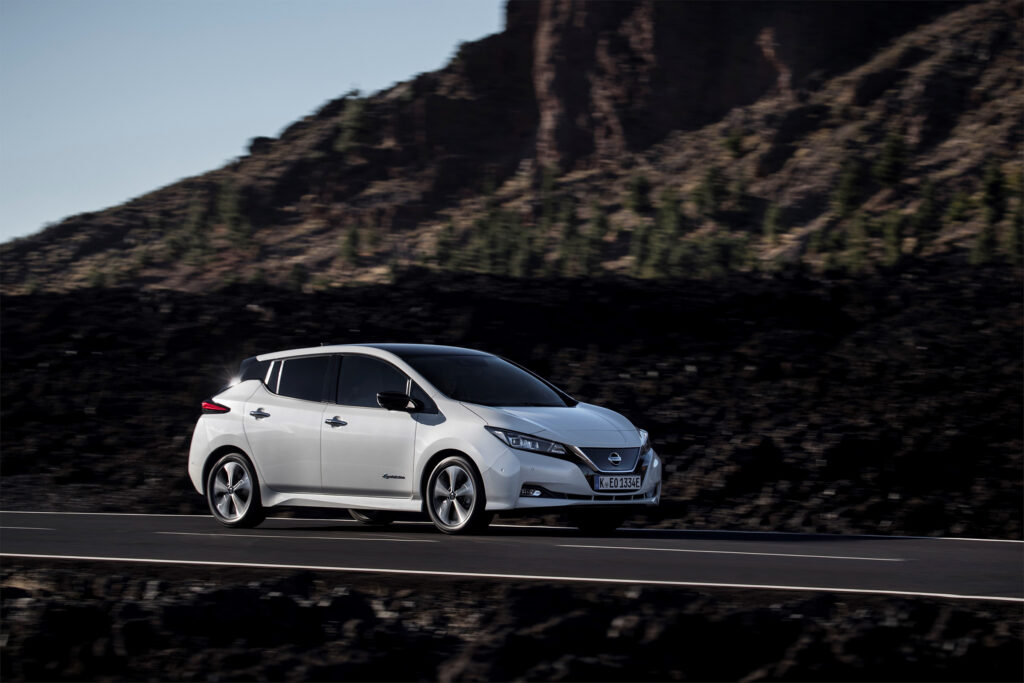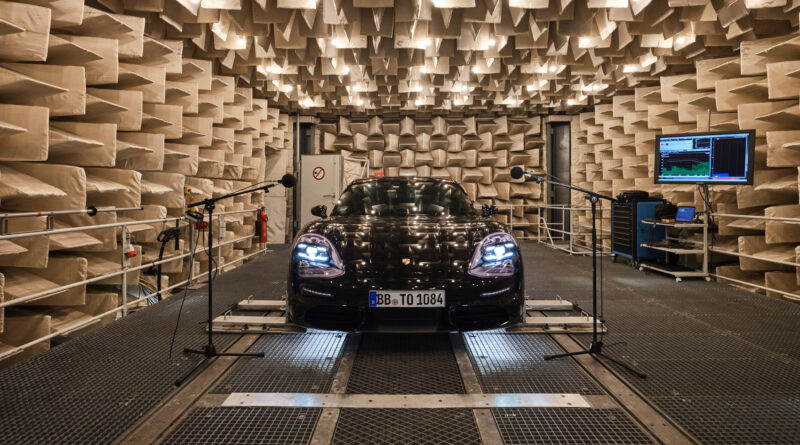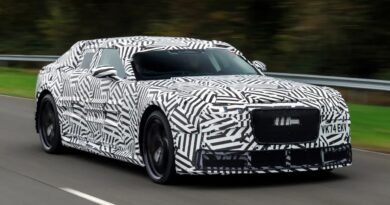Blind rage over the silence of electric cars
It’s not often that I see something on Facebook that really makes me think, or makes me think anything other than “Damn there is some dumb shit on Facebook”.
But I was recently sent a post by someone called Mel Griffiths that really gave me pause for thought about how ignorant I’d been.
As a blind woman, she told the story of her and her husband, who is also blind, and their two guide dogs having a near miss with an electric car, because they never heard it coming.
“I am a confident guide dog handler but I can honestly say that silent electric vehicles scare me,” she wrote.
“I fear that it will take a serious injury to a blind person, or even worse, death, before any meaningful legislation is put into place.
“If it happens to me or someone that I care about, I’ll be in court and I won’t rest until we have justice.
“So please, if you drive an electric vehicle, switch on your sound emitter. After all, you wouldn’t drive at night without your lights on, it’s the same thing.”
This immediately make me think of the car in my own neighbourhood that I’ve dubbed Whispering Death – a hybrid Toyota Corolla driven by a man with a look of malevolence about him (unusual choice of car for a Bad Guy, I know, but perhaps he couldn’t afford a black Lamborghini). He seems to take particular delight in scooting silently around the streets in EV mode, scaring the hell out of people, including my children, and sometimes even me.
I’m possibly somewhat more attuned to the low, boring whine of a hybrid, but it certainly catches a lot of people out. What I’d not through through was just how terrifying that sound, or lack thereof, would be to a blind person.
It did make me wonder whether I’d ever driven an EV with a button that allows you to choose to switch off your sound emitter. The answer was no, although I have driven some – including the prototype for what became Mazda’s MX-30 EV, that do make a very practical, noticeable and nicely futuristic hum at pedestrian speeds.
Frankly, the fact that such systems are not compulsory already is slightly baffling, although perhaps not when you consider that our legislators tend to put their heads between their knees and stuff pieces of coal in their ears whenever someone even whispers “electric vehicles are coming” in their direction.

I should give a Gold Star to the Nissan Leaf at this point, which is well ahead of the game and has a camera built into the windscreen “which is programmed to recognise pedestrians, cyclists and other road users. On detection of a road user, six loudspeakers directionally beam sound at the target to alert them of the presence of the EV”.
That’s some good new-fashioned Japanese engineering right there.
A bit of research reveals that around 35 percent of blind or low-vision pedestrians report having endured close calls with EVs, but probably not Nissan Leafs. More than 380,000 Australians are blind or have low vision and walking is their main means of transport.
Advocates, including Vision Australia, have been on the case, of course, making submissions to a NSW Government inquiry into the use of electric buses, for one thing.
“Silent vehicles pose a significant risk to pedestrians, particularly those who are blind or have low vision,” Chris Edwards, Vision Australia manager government relations and advocacy, said.
“While there are many advantages of electric cars, the quiet engines make it incredibly difficult to hear them coming, especially when they’re travelling at low speeds.”
Vision Australia and others are asking for the Federal Government to make the inclusion of an Acoustic Vehicle Alerting System (AVAS) to be compulsory on all EVs, and hybrid vehicles.
At a meeting of all state and federal transport ministers in Adelaide last year it was proposed that “all electric, hydrogen fuel cell, and hybrid vehicles install an Acoustic Alerting System”, and that this should happen in “early 2020”. It didn’t happen.
The EU has implemented a minimum standard for noise emittance by all new hybrid and electric cars, which will be mandated in 2021, and even the US requires those vehicles to emit an artificial noise at speeds of up to 30km/h by September 2020.
The tricky part will not be EVs – most of which are already at least hard wired for AVAS, due to those EV and US rules – but hybrids.
The CEO of Australia’s Electric Vehicle Council, Behyad Jafari, says most of our electric cars are manufactured in countries where AVAS is mandated.
“Because it’s in development where it needs to be in development, there’s not much more we need to do,” Mr Jafari said
“If there are some older models [of electric cars] lying around without the particular piece of hardware we’re talking about very low levels.”
Look, I can imagine that getting all car companies to agree on one noise, or even one level of volume, for EVs to make would be like getting them to decide on painting all cars one colour. And I can also see that the noise is important because it’s going to be one we all have to put up with for the rest of our lives (the clever part being that it disappears once electric vehicles reach higher speeds). But I think we can all agree that it’s too important to hold off on any longer.
Just get it done, because as Mel from Facebook says, even one person being injured for no good reason is too many.




